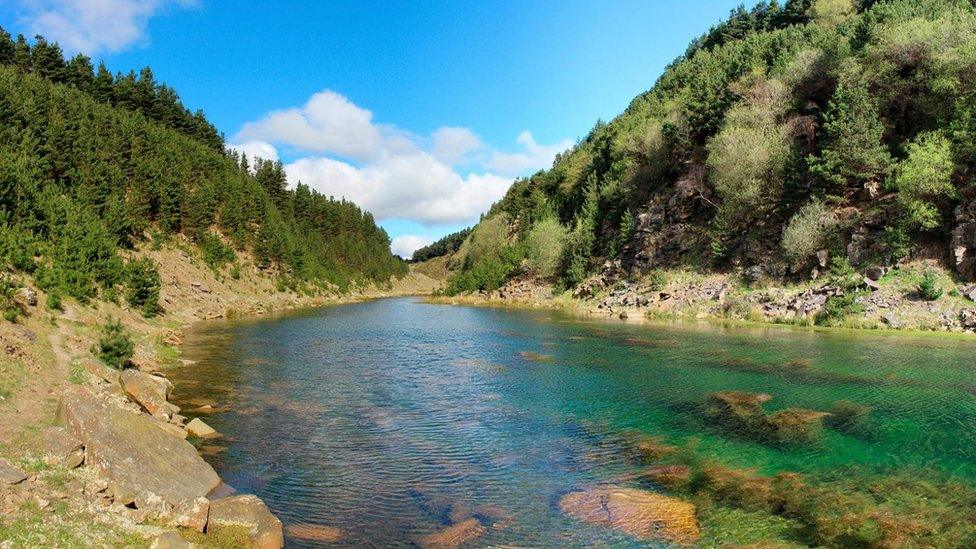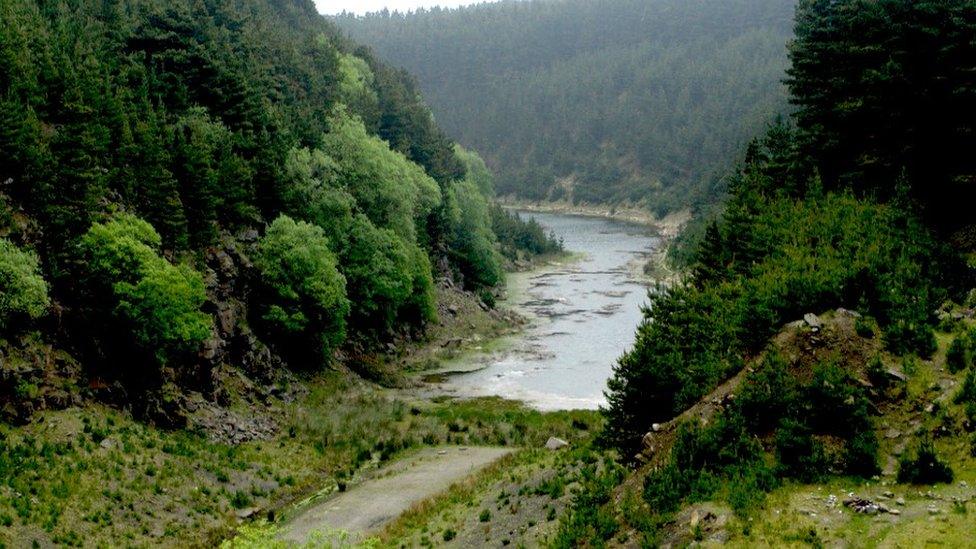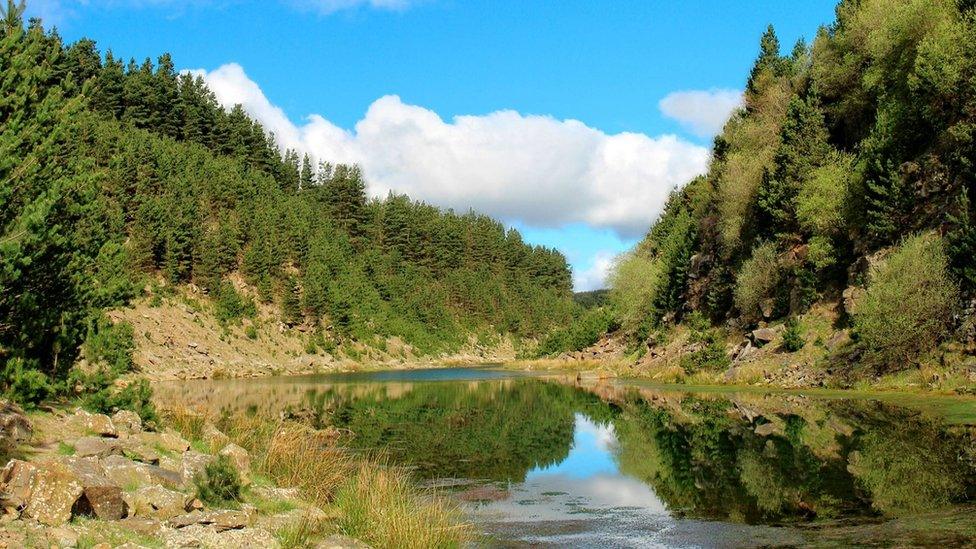Quarry at Tirpentwys 'would restore' local beauty spot
- Published

Hundreds of campaigners are fighting the application to mine sandstone at Tirpentwys, a former opencast mine in Torfaen
Proposals to quarry millions of tonnes of rock from a south Wales beauty spot would "restore the area", a developer has said.
Peakman Ltd is appealing against Torfaen council's decision to deny it permission to quarry at Tirpentwys.
Campaigners fighting the application say the area has been "reclaimed by nature" since opencast mining stopped in 1962, and is now used regularly.
The company told an inquiry its plans included restorative works.
The area, known locally as "the canyons", was left largely as it was when the machines stopped, and a small lake formed in the middle of narrow, steep-sided valleys bordering Blaenau Gwent.

The area, known as the canyons, is popular with walkers and campers
In 2017, Torfaen council rejected Peakman's plans to remove millions of tonnes of sandstone from the site, but the developer appealed.
A three-week inquiry is being held by Clive Nield, the Welsh Government's appointed planning inspector.
Mr Nield will consider the appeal against Torfaen council's decision, which was due to an "unacceptable loss" of ancient woodland.
Campaigner Hywel Clatworthy: "The valley is our history and should be kept"
Representing the company, Morag Ellis QC said there was a need for aggregates in the area which the proposal could meet.
The impact on ancient woodland would be "kept to an absolute minimum", she said, adding that environmental body Natural Resources Wales (NRW) had no objections.
"In effect, the scheme is carrying out the restoration that should have been done in the 1960s, and there will be no reduction in the opportunities for public recreation," Ms Ellis added.

Representing the council, Michael Bedford QC argued the benefits offered by the scheme were insufficient, and that loss of ancient woodland "cannot be mitigated against".
"Whilst as a matter of principle there could be potential public benefits in providing a supply of reclaimed aggregates from secondary sources, at the present time there is no pressing or immediate need to add to existing source of supply," he said.
These arguments were echoed by Phillip Williams, representing campaigners, who added: "The justification is not only suspect, but is only financially beneficial to a select few."
Mr Nield will write a report by the end of March for the consideration of Welsh Ministers, who will make the final decision.